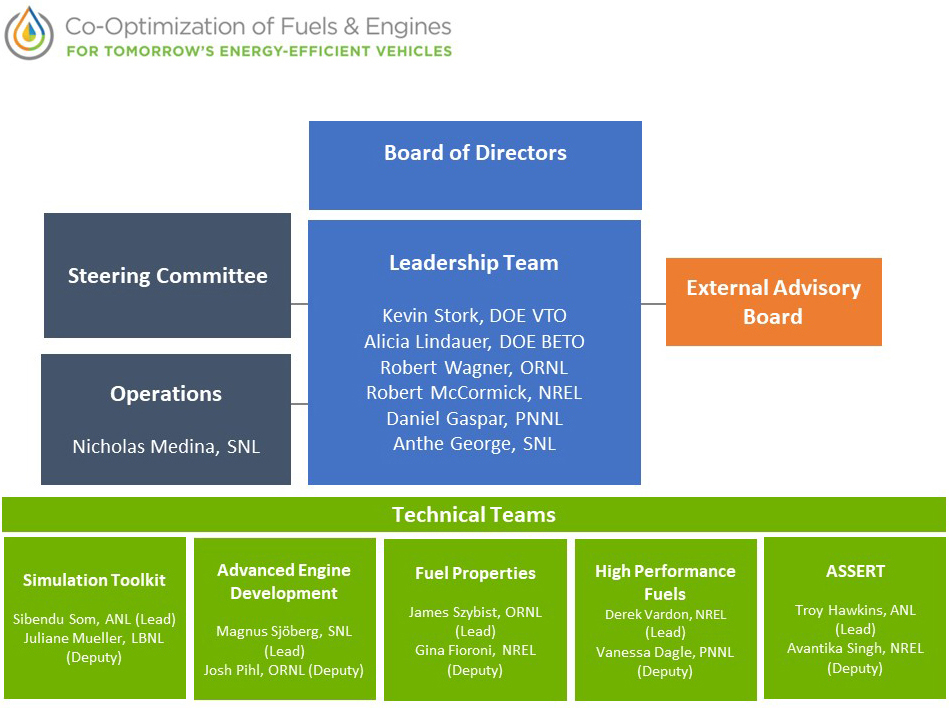The scientists, engineers, and analysts of the Co-Optimization of Fuels & Engines (Co-Optima) initiative are investigating fuels and engines as dynamic design variables that can work together to boost efficiency and performance, while minimizing emissions. Potential benefits include dramatic improvements in vehicle fuel economy and increases in the use of domestically sourced fuel for transportation. This, in turn, has the potential to create new U.S. jobs and keep energy dollars in the United States, while reducing emissions and costs for consumers and commercial operators at the pump.
In addition to exploring synergies among the fuels, spark-ignition (SI) engines, and powertrains used in today’s traditional light-duty (LD) vehicles, the Co-Optima initiative is investigating multimode, advanced compression-ignition (ACI), and mixing-controlled compression ignition (MCCI) solutions for the full range of LD, medium-duty (MD) and HD) vehicles, along with opportunities related to hybrid and plug-in hybrid technologies. The objective scientific outcomes of this research will provide American industry and policymakers with the knowledge, data, and tools needed to decide which changes could prove most viable and beneficial for drivers, businesses, and the environment.
Organization
The Co-Optimization of Fuels & Engines (Co-Optima) initiative is jointly sponsored by the Office of Energy Efficiency & Renewable Energy’s Bioenergy Technologies Office (BETO) and Vehicle Technologies Office (VTO). The National Laboratory consortium includes members from the National Renewable Energy Laboratory and Argonne, Idaho, Lawrence Berkeley, Lawrence Livermore, Los Alamos, Oak Ridge, Pacific Northwest, and Sandia National Laboratories.
The consortium includes a core Leadership Team, a Board of Directors, a Lab Steering Committee, an External Advisory Board, and five Technical Teams.

